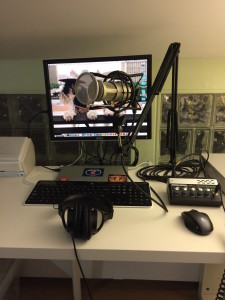I was very excited to read that ABC purchased the rights to adapt StartUp into a television show called Alex, Inc. I couldn’t wait to see the show both because I loved the podcast and because I wanted to see how a podcast could be adapted for television. However, the purpose of the show is to provide a spoof on both start-up culture and podcasters. You can’t properly spoof something unless you understand it.
Changing Stations: Radio Lessons for Tomorrow's Podcasters
What can the history of radio teach us about the present and future of podcasting? I've been contemplating this question for over two years. I think about it because podcasters like to think that what we do is new and novel. Yet none of what we claim as new, is new. It has all happened before in radio. The history of radio is relevant to the present and future of podcasting.
How to Pitch a Podcaster
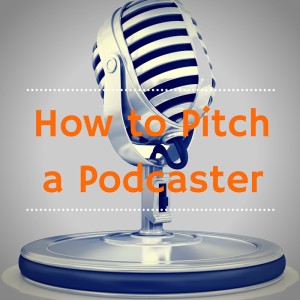 What do you think of the following pitch?
What do you think of the following pitch?
Dear Ms. Covart,
I think my new book George Washington's Winter Wardrobe would make a good discussion piece for Ben Franklin's World. [Amazon Link]
Sincerely,
John Doe
Are you underwhelmed?
I am.
Yet believe it or not, the above pitch represents the format of most of the pitches I receive for Ben Franklin's World: Greeting, book title, amazon link, sign-off.
Podcasts offer historians powerful tools to promote their books and ideas. In this post, you will discover how to pitch a podcaster in a way that will garner you serious consideration for a guest spot.
Behind-the-Scenes of a Podcast
When you download a podcast you receive a 30-60 minute audio file. What you may not know is that 30-60 minute episode represents many hours of a podcaster's time.
For example, each episode of Ben Franklin's World takes 15-20 hours to produce. That work includes reading your book, developing an outline for our discussion, conducting and recording your interview, editing your interview, drafting show notes, recording an intro and outro, mastering the episode so it has a radio-like sound, listening to the final recording to ensure quality, tagging the audio file, uploading the audio file to a hosting service, editing and posting show notes, creating a custom episode graphic for social media, and marketing your episode to listeners and social media followers.
Admittedly, I am spend more time working on episodes than many podcasters because I am committed to ensuring that each of my guest historians sounds as good as possible. However, most podcasters spend at least 6-10 hours on each episode they produce. The majority of us put a ton of work into our shows and you know what?
Very few of us get paid to do this work. We podcast because we have a passion for the media and our topic.
When we receive pitches like the one above we feel insulted. The above pitch demonstrates that the sender did not take the time to get to know us, our show, or our audience. It also reflects that the sender does not value our time. We are too busy to research you and your book, which is why most of us either do not reply or send an automatic "no" when we receive such an e-mail.
How to Pitch a Podcaster: Secrets Revealed
Many podcasters want to be pitched and we want to say "yes."
How do you get us to say "yes?"
Woo us.
That's right, we want to be courted. We want you to tell us who you are, why you love our show, and about the value you can provide to our listeners.
A Good, Fictitious Pitch
Dear Dr. Covart,
I have been following your work for some time and I must say, I enjoy your tweets about early American history. I am sorry that your beloved Red Sox finished in the basement of the AL East this year, but at least there is next year, right?
I write to you because I think my new book George Washington's Winter Wardrobe [amazon link embedded in title text or included at bottom of e-mail] would make an excellent conversation topic for a Ben Franklin's World episode. Mine is the first book to describe and analyze Washington's extensive array of winter capes, jackets, gloves, and boots. I heard you speak with Kimberly Alexander in episode 024. You discussed the deliberate thought early American people gave when they had their shoes and clothes custom tailored to fit the styles of the times they lived in. Did you know that Washington did the same before each winter encampment? The cloak he sported during the frigid winter of 1779/80 at Jockey Hollow was 2 lbs heavier than the one he wore at Valley Forge during the winter of 1777/78. He had an extra-heavy lining installed after his experience at Valley Forge. Also, by wearing his blue wool cape with red lining around the encampment, Washington caused a surge in demand for similar cloaks, which stimulated the national economy. I think your listeners would enjoy hearing this story of how the fashion trends established by Washington's winter wardrobe put Americans to work. We could also talk about how seamstresses and tailors fashioned Washington's wardrobe too as I know your audience loves to hear about the details of everyday life in early America.
If you think your audience would be interested in my work, please let me know and I will have my publisher send you a copy of my book for your further consideration. You should also know that I have over 10 years experience working with clothing and other material sources and that I often speak to public audiences about how historians use clothing to learn about and interpret the past.
Thank you for your time and consideration,
John Doe
Podcaster Pitch Anatomy
Introduction: Demonstrate that you took the time to research the podcast host.
In the above letter, the writer demonstrates that they know I hold a Ph.D., that I like to tweet about early American History, and that I am a huge Red Sox fan. This doesn't mean that they have followed my work for some time, but it does mean that they took the time to visit my website and read my about page and Twitter bio.
Pitch Paragraph: Get to the point.
The author of this fictitious pitch tells me that they have a new book that they wish to discuss on my podcast. They also explain why their book is significant and why my audience might be interested in hearing about the author's ideas. Furthermore, the prospective guest demonstrates that they have listened to Ben Franklin's World. They know about my past guests and show topics and they used that information to explain why their topic is a good fit for my show.
Bio Paragraph: Who are you?
In addition to offering me a review copy of their book, the author tells me personal details that demonstrate why they would make a good guest: They have over 10 years experience working with material sources and they have experience speaking to non-historians about how-to use clothing as a primary source.
Closing: Thank and sign off.
Thank the podcaster for their time and sign your name.
Conclusion
Although not perfectly worded, the above pitch would garner attention from most podcasters because it tells us what we need to know: Who you are, why your book is significant, and why you would make a good guest.
The above letter also demonstrates respect. It shows that the sender took the time to get to know the host, their show, and their audience.
Additional Resources
Do you have questions about how to pitch a podcast host? Leave a comment below, tweet me, or listen to my friend Natalie Eckdahl's episode on "How to Pitch a Podcaster."
What Would Ben Franklin Do?
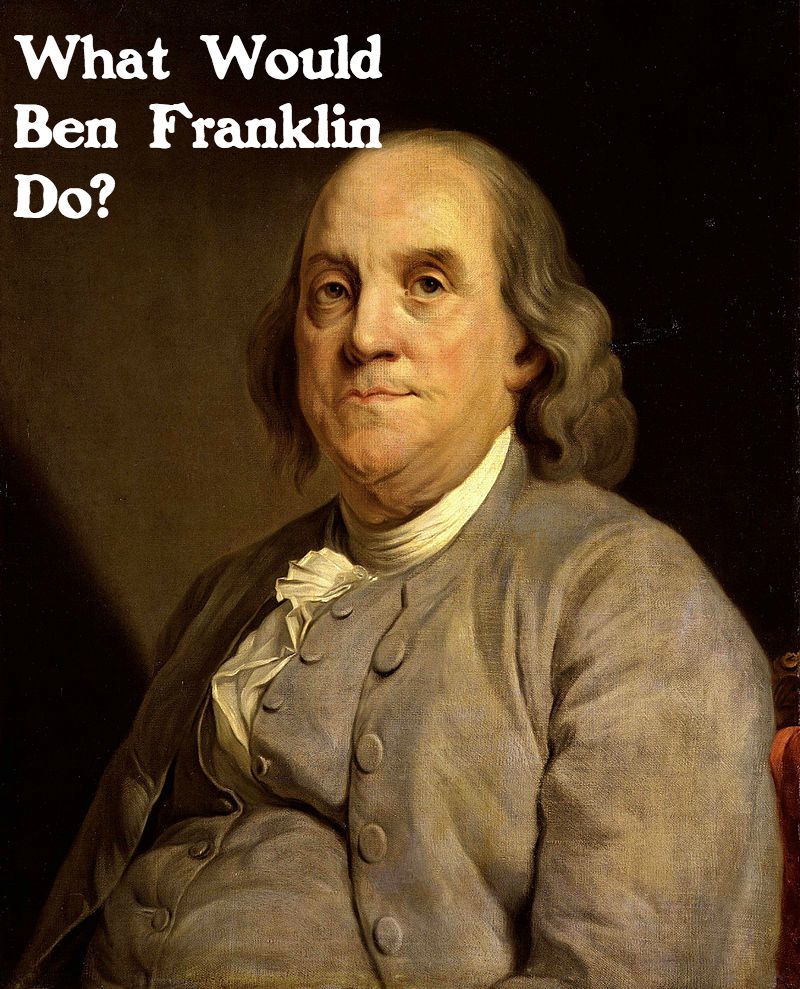 What would Ben Franklin do?
July has turned out to be an exciting and stressful month.
What would Ben Franklin do?
July has turned out to be an exciting and stressful month.
I am traveling a lot: I visited Bermuda at the start of the month and I just came home from the SHEAR conference in Raleigh, North Carolina. Next week, I am off to Podcast Movement, the national podcasting conference, in Fort Worth, Texas.
On the home front, I am working a LOT.
Ben Franklin's World: A Podcast About Early American History continues to do well, it just surpassed 225,000 downloads. It has also started to grow in ways that I hadn't anticipated. I must create plans to handle this growth. (I promise to explain once my plans are in place.)
I am also trying to find time to work on my book. Yes, I am still working on turning my dissertation into a book and I really want to finish it so I can start my next research project.
With all of this going on, I need to find more time. Which brings me to my new mantra: What would Ben Franklin do?
I am confident that Ben would cut all non-essentials from his schedule and focus on finding an apprentice and funding for his publication.
Therefore, I will not be posting "Book of the Week" or roundup posts until I can figure out how to outsource more podcast work. I have a couple of plans to find/attract funding. I promise to share these ideas soon.
Additionally, my posting on this blog will likely be a bit more sporadic over the next few months, or perhaps not. I have several posts in my draft queue. They cover topics such as 18-Second History: How Historians Can Use Clammr to Spread History & Promote Their Work; Podcast Workflow; Crowdsource Funding Your Digital History Project; How to Tweet a Conference Panel; To Conference or Not to Conference; and Tick-Tock the Academic Publishing Clock.
Thank you for your understanding and support.
How I Launched My Podcast
 The wait is over!
On Tuesday October 7, 2014, I launched my podcast “Ben Franklin’s World: A Podcast About Early American History.”
The wait is over!
On Tuesday October 7, 2014, I launched my podcast “Ben Franklin’s World: A Podcast About Early American History.”
In this post you will discover more about the show, its launch, and what I hope the show will accomplish.
The Show
Ben Franklin’s World is a podcast about early American history.
Each episode runs approximately 30-45 minutes and contains an interview with an historian who shares their unique insights into our early American past.
The podcast is intended for a non-specialist audience of history lovers who want to know more about the historical people and events that have impacted and shaped our present-day world.
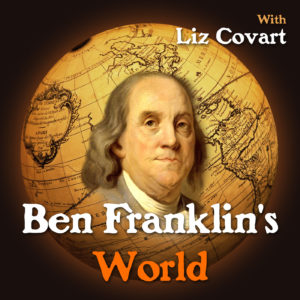 Ben Franklin's World explores the history of early America in its broadest sense. Events in Europe, Africa, the Caribbean, and South America affected the way North Americans lived, dressed, worshipped, conducted business, and exercised diplomacy. Therefore, some episodes of Ben Franklin’s World investigate non-North American peoples and events and the effect they had on the lives of early Americans.
Ben Franklin's World explores the history of early America in its broadest sense. Events in Europe, Africa, the Caribbean, and South America affected the way North Americans lived, dressed, worshipped, conducted business, and exercised diplomacy. Therefore, some episodes of Ben Franklin’s World investigate non-North American peoples and events and the effect they had on the lives of early Americans.
Similarly, episodes span a broad period of time. I intend to help my listeners explore not only the 18th-century world that Benjamin Franklin lived in, but the 17th-century world that brought forth the period he lived in and the early-to-mid 19th-century world that Franklin and his generation influenced.
The Launch
Tuesday, October 7, marked the soft launch of the podcast.
The full release of Ben Franklin’s World will take place in December when I will list the show in iTunes, Stitcher, and Soundcloud, the three major podcast subscription services.
I have chosen a two-step launch for four reasons:
First, I want to bring history to as many people as I possibly can, which means that I need to produce a podcast that releases quality content on a consistent basis.
By delaying the release of my podcast onto the major networks, I am giving myself time to develop a catalog of 8-10 episodes.
 Many podcast listeners want to know that a podcaster has invested themselves in their show before they will spend time listening to it. This makes sense given that most podcasters never publish more than 7 episodes. Potential listeners determine a podcaster's investment in their show by the number of episodes available for download and by whether the podcaster has released those episodes on a regular schedule.
Many podcast listeners want to know that a podcaster has invested themselves in their show before they will spend time listening to it. This makes sense given that most podcasters never publish more than 7 episodes. Potential listeners determine a podcaster's investment in their show by the number of episodes available for download and by whether the podcaster has released those episodes on a regular schedule.
By launching Ben Franklin’s World onto the major subscription networks with 8-10 episodes, I will help entice people to give my podcast a try. My 8-10 episode catalog will offer proof that I am looking toward the long term with my show and that I have released content on a consistent basis.
Second, I need time to practice and improve my skills as an interviewer.
Interviewing is a practiced skill just like writing, teaching, and public speaking.
Thus far I have conducted seven interviews and with each interview I ask better questions and grow more comfortable and confident behind the mic. This is important as it increases the quality of the show and helps me grow my audience.
Most podcast listeners will download and listen to your most recent episode before they go back and listen to your earlier episodes. Having 8-10 episodes will allow me to hook potential listeners on an episode that has benefitted from my practice.
Third, the delay gives me time to seek feedback from early listeners.
Early feedback will allow me to tweak and improve the podcast either before or not long after it reaches iTunes.
Fourth, I would like to make a run at the iTunes “New and Noteworthy” section.
The “New and Noteworthy” section provides selected podcasts with free, prominent advertising on the front page of iTunes. Placement in this category would bring Ben Franklin’s World to the attention of countless history lovers.
New podcasts have just 8 weeks to make this section. iTunes determines placement based on show ratings and reviews and number of downloads. The more episodes I release with, the more downloads I will receive as most podcast listeners will download not just one episode, but the entire catalog of a show. I hope to encourage early listeners to help promote the show by giving it a rating and a review.
Show Goals
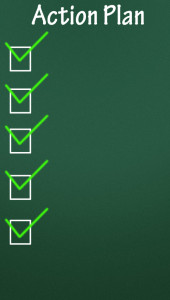 I have three goals for the Podcast:
I have three goals for the Podcast:
1. Create a broader awareness about early American history.
Do you remember when David McCullough published [simpleazon-link asin="0743223136" locale="us"]John Adams[/simpleazon-link]?
For most of 2001, and into 2002, everyone talked about that book. Even people who seemed to have only a marginal interest in history, picked up and read McCullough’s tome.
I applied to grad school because I wanted to learn how I could get people to talk about history the way David McCullough did.
2. Connect non-specialist history lovers with academic and public historians.
I hope Ben Franklin’s World will create wide public awareness about the fantastic research, books, and interpretive programs of academic and public historians.
3. Lead me to my next big professional opportunity.
I would be disingenuous if I did not share my hope that this podcast will lead me to my "next big thing."
My blog has created so many opportunities for me to speak, write, consult, and meet like-minded historians and writers. I hope the podcast will too.
Perhaps Ben Franklin's World will even turn into a self-supporting enterprise or a profitable endeavor that will support my historical research. Stranger things have happened.
Share Your Story
What is your current or next career endeavor?
*Video of Soyuz rocket launch courtesy of Wikimedia Commons contributor DryominG



